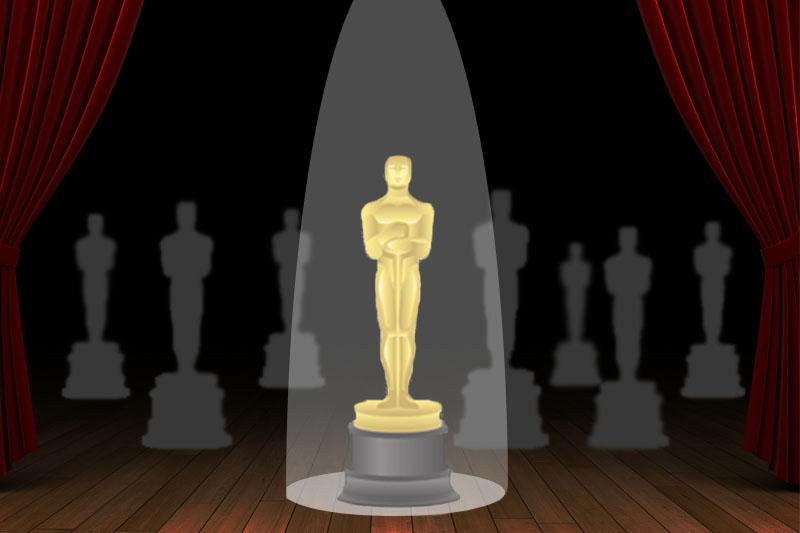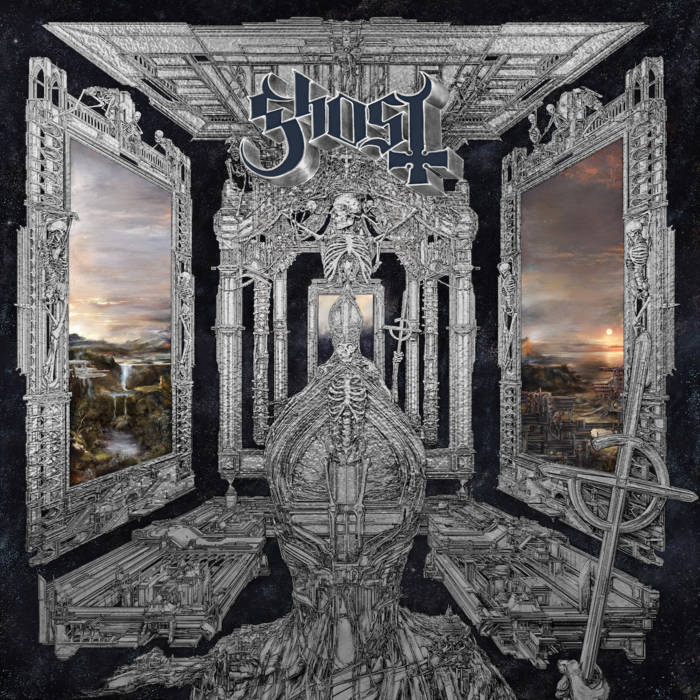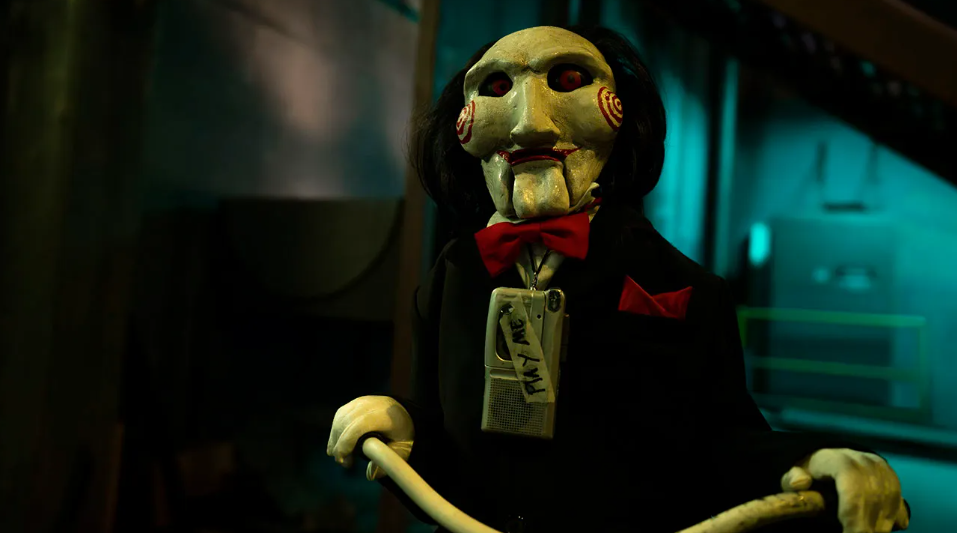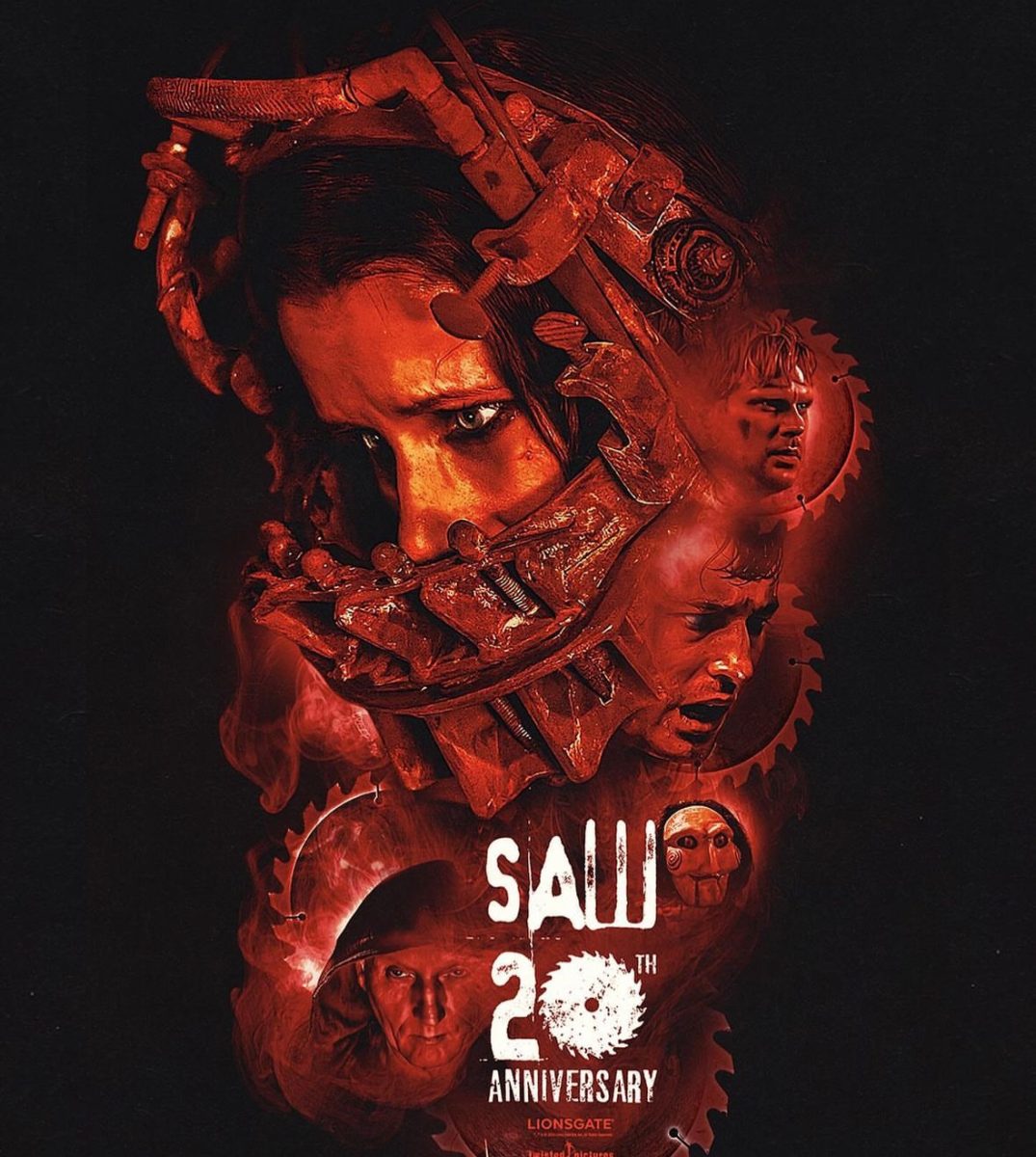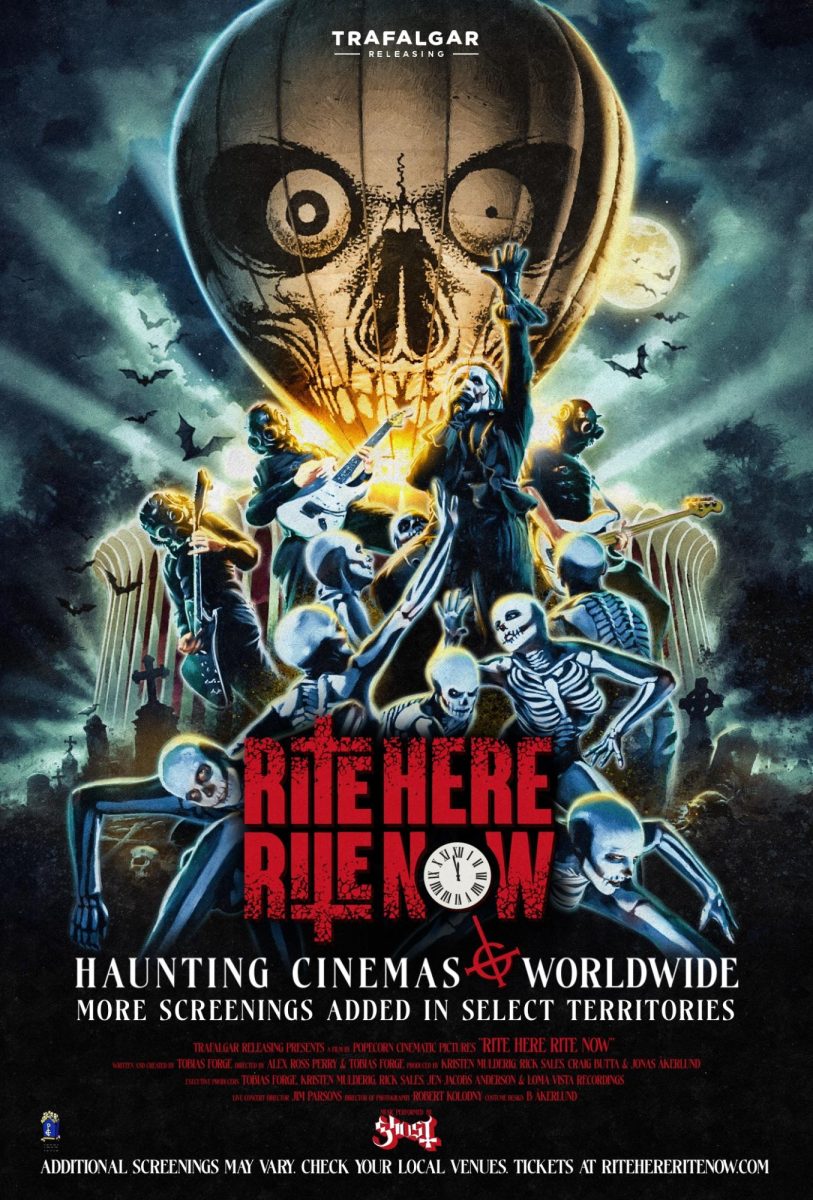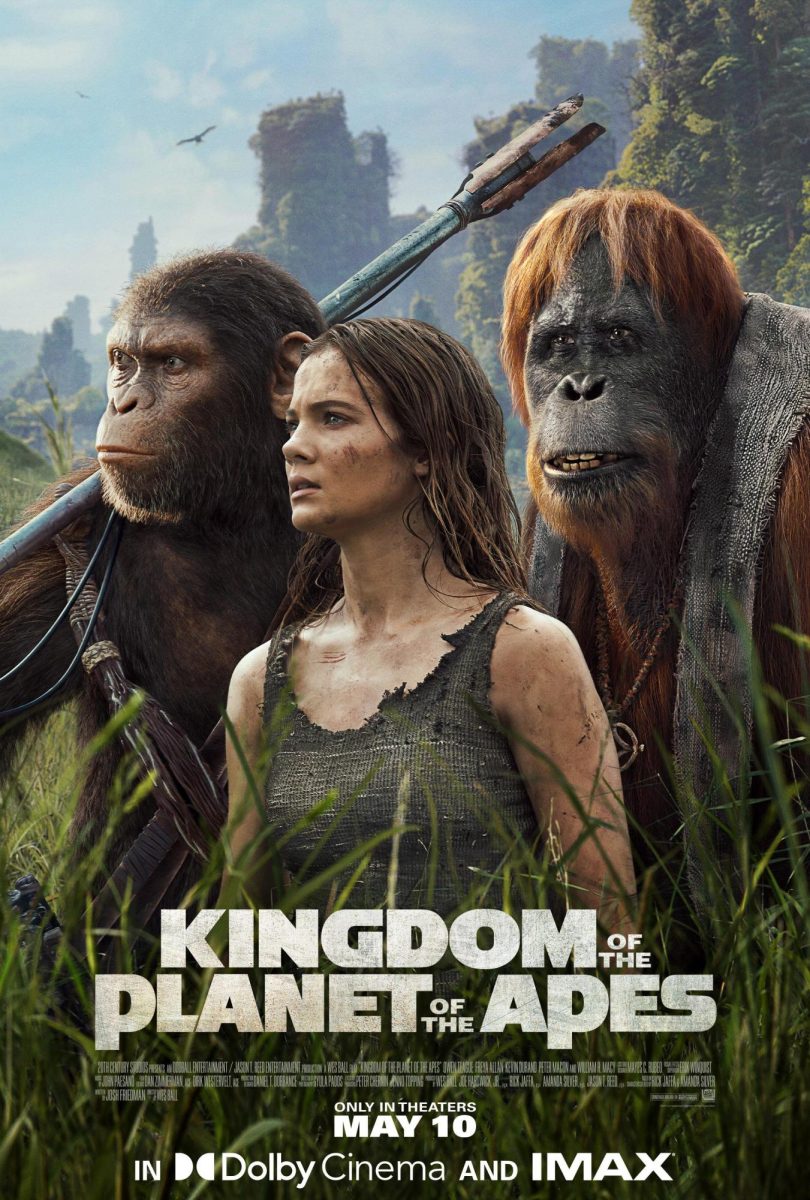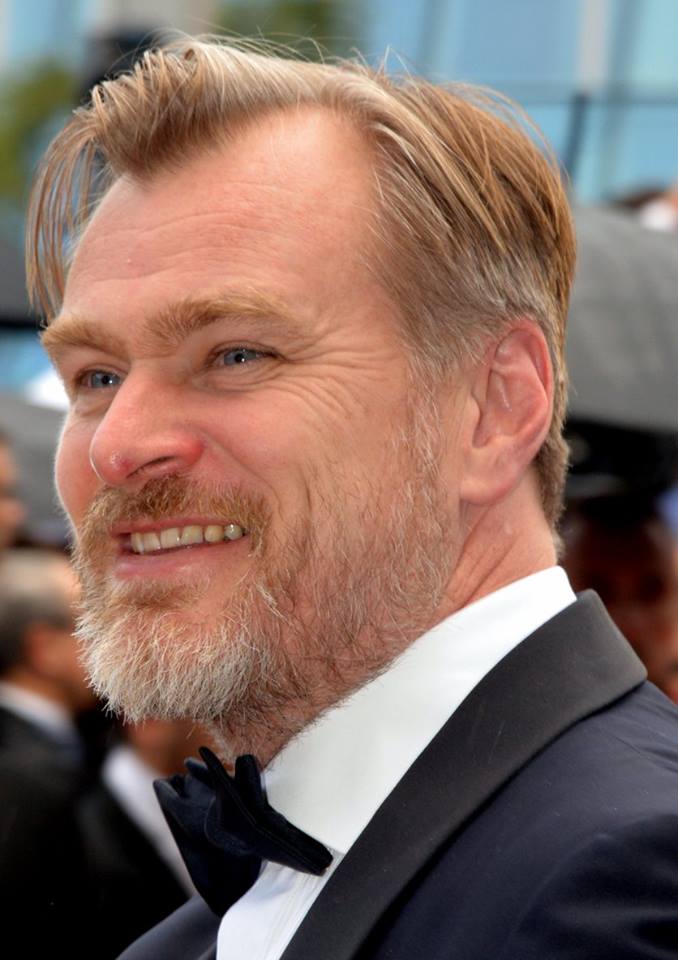The 2018 Academy Awards are right around the corner, and I am very much looking forward to biggest Oscar of the night: “Best Picture.” This year there are 9 films nominated, and most of them deserve to be considered. In my anticipation for the big night, I ranked the nominees from worst to best, sharing my thoughts on each film and how it ranks compared to the other nominees.
Many people may have not seen all of these films, so the descriptions are spoiler-free. If my description of a certain film intrigues you, I encourage you to check it out for yourself.
9. Darkest Hour : Directed by Joe Wright
In my opinion, the inclusion of “Darkest Hour” on the list of best nominees is a mistake. Disregarding how you might feel about him as a leader, with the film almost entirely ignoring any questioning of his actions, the movie never steps above average.
The story moves slowly and has no lasting impact. I can tell which moments are meant to relay the weight of Churchill’s decisions, moments where the film wants the audience to feel the same pressure Churchill felt at the time, but it just comes off as stale.
The visuals here are downright confusing. The lighting feels so off that I’m convinced it had to be a creative decision, yet it adds nothing to the film. Instead, the weird choices cause it to feel even more lifeless. There are some well shot scenes and the art design is intriguing to the eye, but even that grows boring after a while.
Gary Oldman portrayal of Winston Churchill is the best thing the film has going for it. Oldman’s performance is transformative, invoking a similar style to Daniel Day-Lewis’s portrayal of Lincoln. Ultimately, “Darkest Hour” is a standard biopic with some bright spots but not nearly enough to warrant a nomination with so many other fantastic films released in 2017.
8. The Post : Directed by Steven Spielberg
With the talents of Steven Spielberg, Tom Hanks and Meryl Streep, of course this film was going to be good. “The Post” is a film that just works. The script is oddly paced, but in a way, that helps the film. The ways that the story unfolds to the viewer is intriguing and kept my interest throughout. The film’s themes seem very timely to the current political and social climate of America, and they execute these themes with precision.
Streep and Hanks are Hollywood veterans for a reason, and they both give solid performances here. The cast is also well rounded out by the likes of Bob Odenkirk and Sarah Paulson, who never feel outclassed by Hanks and Streep. The choices these characters make seem to leap off the screen towards the audience–extending a feeling of paranoia to the viewer. These are all compliments of the film, so why so low on the list?
This film fails to ever leap into greatness. Yes, this is a very solid movie, and I would recommend it to most anybody. However, the rest of the films on this list all pack more punch than “The Post.” “The Post” is such a good film in almost every aspect, but its failure to really take the next step leaves it at a lower spot on my list.
7. Get Out : Directed by Jordan Peele
“Get Out” was perhaps the biggest mix of critical and commercial success released this year. This was the first film directed by Jordan Peele, which was created on a budget of just $4.5 million. The film would go on to bring in over $175 million in box office as well as widespread critical praise. So, what made “Get Out” so special?
“Get Out” provides some of the smartest social commentary I have ever seen in a film. Its set-up and execution of the message is written with a lot of precision and wit. It’s clear that Peele, who also wrote the film, had a lot to say about racism, interracial couples and the black experience in white America. As a black man in an interracial relationship himself, Peele clearly used his own experiences to write a script like this.
It’s also worth saying that in addition to being smart, the film is funny, terrifying and captivating throughout its entire 103 minute run time. Its pacing is excellent–providing enough time for social commentary as well as comedic and horror elements. The result is a film that feels complete and very well rounded.
On the downside, I would say that the horror elements felt rather weak in comparison to the other parts to the film. Nothing about this film is bad, but the final act seemed rather typical to me and was a tad disappointing considering how strong the first hour plays out. Peele’s debut is impressive, but I don’t yet feel he has mastered his directing skills.
“Get Out” is really a film everybody should see, and it comes in at seven on this list due only to the strength of the other nominees this year not on any fault of it’s own.
6. Phantom Thread : Directed by Paul Thomas Anderson
“Phantom Thread,” directed by Paul Thomas Anderson, is a tough film for me to rank. My feelings about this film are mixed, so let’s start with the good. Daniel Day Lewis may very well be the best actor of all-time. His ability to be entirely absorbed by a character is so incredible to see on a screen, and his portrayal of Reynolds Woodcock as a 1950’s London dressmaker is up there with the best of his career.
Woodcock as a character is so challenging to an audience. His obsession with his work causes him to be rather off-putting, particular and, at times, downright rude. Enter Vicky Krieps as Alma, a woman who meets Woodcock and eventually begins living with him as his muse and romantic partner. The film then shifts focus to follow these two and their atypical relationship. Alma and Woodcock are a strange pairing to say the least, and the chronicles of their love, admiration and turmoil with one another are enough to carry the film.
Yet, my issue here comes with the character of Alma. She has an almost unwavering love for Woodcock, and the reasons why are not explained to the viewer. She is a character who is given no backstory and whose actions seem to often conflict with her emotions. While I do think often many of us act against our emotions, Alma’s unwavering affection for Woodcock is strange to me. The result is a film that feels a bit incomplete. When the entire film is based around two character’s relationship, it’s essential to have a distinct understanding of who those two people are, and even by the end of the film, I’m not entirely sure who Alma truly is.
Despite this, “Phantom Thread” is visually stunning with the art and production design being top notch. The score, composed by Johnny Greenwood, is one to remember. Anderson’s ability to direct a film so meticulously precise is something I can appreciate. Although I will admit that parts of “Phantom Thread” felt incomplete, its strengths greatly outweigh the flaws, and that’s why it sits at number 6 on the list.
5. Dunkirk : Directed by Christopher Nolan
Christopher Nolan’s “Dunkirk” is a display of technical prowess of the art form of cinema. Its visuals are loudly explosive while remaining entirely human. It’s a type of film that is made with the intention to “blow you away,” and for me, it did just that.
“Dunkirk,” at its core, is a film about a group of solders surrounded by enemies and their attempt to escape from them. While the film has gunfire, bombs, tanks and soldiers, it’s never really a war film in the traditional sense.
There are almost too many standout performances to call attention to. One In particular who I feel deserves praise is Mark Rylance as Mr. Dawson. There is something stoic and balanced about his character, and Rylance does an incredible job portraying that.
The film has an atypical flow, telling the story from three separate perspectives, and changes freely between the three of them. While this style of storytelling is unique and intriguing to me at times, it feels like it may be the kryptonite of the film. “Dunkirk” is only 106 minutes long, and to split this run time between three different perspectives left me wanting more from each of them. The result left me with no emotional investment in any of the characters as we spend so little time with any individual.
“Dunkirk” could have benefited from spending more time with these characters. While this aspect did disappoint me, “Dunkirk” is still one of my favorite films of the year due to its technical aspects. The sound design here is some of the best ever, and Hoyte Van Hoytema’s cinematography is nothing short of stunning. The result is a visceral experience that grips the viewer and never let’s go.
4. The Shape of Water : Directed by Guillermo Del Toro
Guillermo Del Toro’s “The Shape of Water” is a modern fairy tale of sorts–detailing the unlikely paring of a mute custodial woman and a scale covered fish-man. Yes, the film is as strange as it sounds, and it is just as magical at every turn.
Del Toro’s ability to masterfully create a world is in full effect here. He is an absolute master of set design, and it shows through in “The Shape of Water.” This film commits to a style early on and never abandons it. Filling every frame with so much detail and visual splendor, Del Toro quickly introduces us into this world and then invites us inside of it.
Sally Hawkins is powerful in her performance of Elisa, a mute woman who develops a romantic relationship with the creature kept captive at the secret facility where she works. Michael Shannon and Richard Jenkins are also standout here with Shannon’s antagonist commanding fear from the audience that is seldom matched.
“The Shape of Water” is really a film you must see for yourself to understand. Its sense of wonder and whimsy are so enjoyable. Perhaps the film could have spent more time developing the relationship between Elsa and the creature, but in the end it really is a cinematic treat.
3. Lady Bird : Directed by Greta Gerwig
“Lady Bird” is the most honest and powerful description of adolescence ever displayed in cinema. This is a coming-of-age film at its core, and it is most likely the best one of its genre. The film is a brutally honest look at the realities of the everyday.
“Lady Bird’s” ability to remain so unflinchingly honest and real is its greatest strength. Writer and Director Greta Gerwig based the film on her own experiences growing up, and the result is a film and script that feels so grounded in reality yet loaded with emotional impact. Many themes are discussed here: leaving home, family pressures, flippancy with parental gratitude, the compromising of one’s identity for others and the effect of wealth on people, and all of them feel so immensely moving to my core. The film’s emotional range is broader than most. At times, it’s laugh out loud funny, at times, it’s devastating, and at times, it is all too relatable.
You have to be a certain type of person to relate to “Lady Bird.” While watching this film, I found myself looking back to age eighteen–a messy age for sure–a time when you feel like you are emotionally grown, and that you know what is best for yourself–even though you don’t. The film just so perfectly encapsulates the feeling of this time, and the countless troubles that come from underestimating what you’re in for.
Lady Bird is one of those slice-of-life films that feel so organic in its execution that It deserves to be seen and praised.
2. Call Me By Your Name : Directed by Luca Guadagnino
An expertly subtle film about love, among other things. The setting is 1980’s Italy, which is not only visually stunning but executed with precision in the fashion, vehicles and décor. The result is a world that feels real and is an absolute delight to look at.
The film’s conversations and action are not always fully explained; in essence, it refuses to hold your hand. Instead, it invites you to discover its symbols and subtleties for yourself. This film exceeds in its subtleties, and there is a lot for the audience to discover.
The relationship between Elio (Timothée Chalamet) and Oliver (Armie Hammer) is not always what you may assume heading into the film, which I greatly enjoyed. Both Chalamet and Hammer give amazing, full performances.
While “Call Me By Your Name” is a movie about a gay relationship, it is more concerned with being a movie about love. The final 20 minutes delivered two incredible moments. One, highlighted by Micheal Stuhlberg, is perhaps one of my favorite monologues in cinema, and another being the very last shot of the film. The last shot is one of the most emotionally impactful moments I have ever felt from a film.
The film’s score and soundtrack perfectly compliment the elegance of the Italian setting. The cinematography feels fresh and squeezes style out of said setting. Ultimately, “Call Me By Your Name” is one of my favorite love stories ever told with the audio and video dripping with beauty and eloquence that is rarely ever seen. The ending is perfect, and one of my favorite moments from any film ever. This film is an absolute must see, and it is up there with my favorites of all-time.
1.Three Billboards Outside Ebbing, Missouri : Directed by Martin McDonagh
This film is my favorite of the year without a shadow of a doubt. Frances McDormand gives one the best performance of 2017. Her ability to display complex emotions in a rigid and stoic manner is stunning. The character feels so organic and real–something most films fail to achieve. She is powerful and stubborn yet equally fragile and hurt.
The scenes of her being fearlessly confrontational and brave in the face of physical violence are juxtaposed with her in her weakest moments. A scene comes to mind when she is trying to grab a fire extinguisher from her son, and she lets out a single call of “ROBBIE” with such a powerful emotive tone that I felt my heart sink. Rockwell also gives a killer performance, as well as all the surrounding cast of Dinklage, Harrelson and Caleb Landry Jones.
Ultimately, it’s McDonagh’s writing that is the strength of this film. McDonagh started his career as a playwright, and it’s easy to see that. His prowess with characters and their interactions is defined and precise. He builds these individuals from the ground up; with so much psychological backing, that every individual who gets proper speaking time feels real–feels honest–to their core whether for better or for worse.
I’m convinced that McDonagh is one of the greatest screenwriters of all-time, and I can only hope he continues to cultivate original stories like this one. His ability to write dialogue seems unmatched in its wit and humanism. And his plot structure is great at providing the stereotypical “twists and turns” without ever feeling cheap or out of place. He avoids the standard storytelling structures that typically define movies in favor of breathing life into his story in a manner that is reminiscent of theater: multiple conflicts, varying structures on how these conflicts are reached and a love of the atypical resolution.
I’m not one for crying at films. In fact, I can count on one hand the number of times a movie has made me tear up. But, this movie did that on more than one occasion without ever really feeling like it was trying.
If forced to identify one, the film’s main theme is perhaps the raw, consuming power of anger, which was probably best shown when a character says she read the phrase “anger begets anger” on a bookmark. Well, “anger begets anger” rings true in almost every character–especially those of McDormand and Rockwell.
This film is something absolutely special, and it will go down as one of my favorite films to ever grace the screen.



